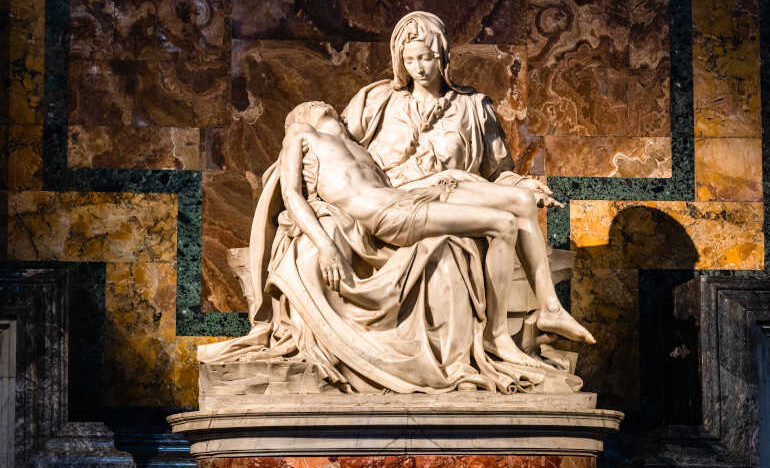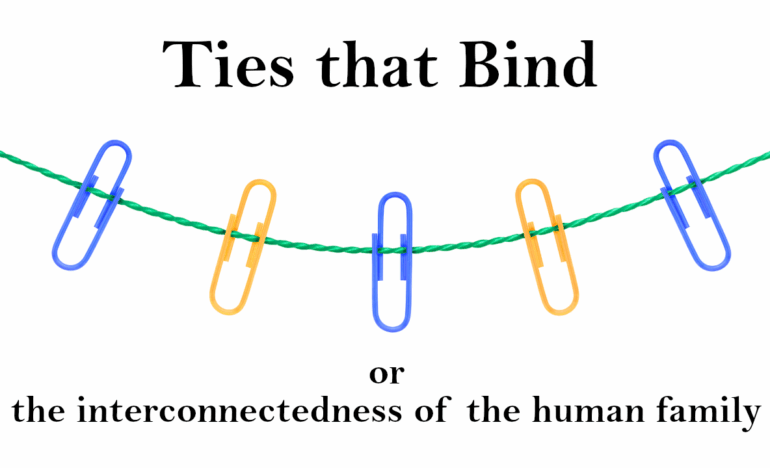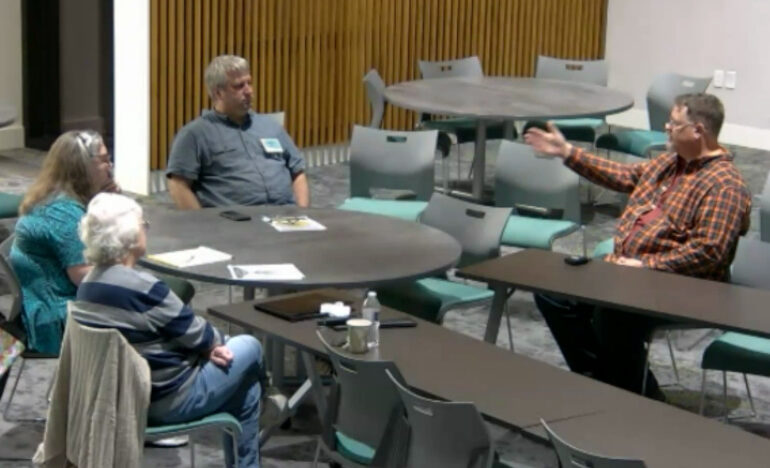Living in tension: Can you stay in a church that inspires and disappoints?

By Fr. Bill Nordenbrock, CPPS
Let me make an uncommonly honest confession. In the course of a half century [of living], I have seen more Catholic corruption than you have read of. I have tasted it. I have been reasonably corrupt myself, and yet, I joy in this Church — this living, pulsing, sinning people of God, love it with a crucifying passion. Why?
For all the Catholic hate, I experience here a community of love. For all the institutional idiocy, I find here a tradition of reason. For all the individual repressions, I breathe here an air of freedom. For all the fear of sex, I discover here the redemption of my body.
In an age so inhuman, I touch here tears of compassion. In a world so grim and humorless, I share here rich joy and earthy laughter. In the midst of death, I hear here an incomparable stress on life. For all the apparent absence of God, I sense here the real presence of Christ.
— Jesuit Fr. Walter J. Burghardt
I have often heard it said, (although I can’t find the research data to cite) that the largest religious denomination in the United States is the Roman Catholic Church. The second-largest group of people are ex-Catholics, people raised Catholic but who are no longer active in the Church. While I can’t cite the research, anecdotal evidence abounds. I think that it is hard to find a Catholic family today that doesn’t reflect these phenomena to a greater or lesser degree.
It seems in my lifetime that the Church has seen a steady decline in participation and cultural influence. I can’t remember meeting an individual Catholic who would disagree with me. Where the conversation with others gets interesting is when they reveal their belief as to why this is occurring.
Never miss an article published on the Renewal Center website: Sign up to receive our newsletters.
Many place the “blame” on the Second Vatican Council. They say that the documents of Vatican II were like a blast that fractured the bedrock of certainty and authority, which are essential to the foundation of the Church. Others would say the opposite; the problem is that the Church has been too slow to realize the vision of the Council and has slowly drifted into irrelevance. This group would cite as evidence the widespread disagreement with official Church teaching on matters of sexual ethics and gender equality.
In very recent times, I have mourned the effect of the “cultural wars” seeping into and fracturing our Church communion. One person says that no good Catholic could vote for a Democrat. Another person wonders how any Catholic could be a Trump Republican. Both wonder how to stay in a church with “those people.”
We seem to be in a time when self-righteousness and the desire to excommunicate the other is the norm from every side. Even though I try to stake a position as a non-combatant in this war, I wonder why I bother to try to stay in such a divided Church.
The quote above from the Jesuit theologian Walter Burghardt has always resonated within me. It expresses a belief or an attitude that I share. And yet I struggle with the tension of a Church that is simultaneously inspirational and disappointing.
Can we avoid the simplistic binary approach of seeing the Church as either “nothing but good” or “too bad to be a part of?” Can we put aside both rose-colored glasses and blinding cynicism? Can we orient ourselves to stand in a place where we know that some Catholics will think we are disloyal, while others will call us naive? Is it possible to be both faithfully loyal and faithfully prophetic? And the important question that I struggle to answer: Can a spirituality of the Precious Blood help us to do that?
The theologian and Precious Blood Missionary, Robert Schreiter wrote in his seminal work on Precious Blood spirituality, In Water and Blood, that the symbolic power of the blood of Christ is amplified because it can hold the contradiction of being a symbol of both death and life. Faith allows us to hold contradictions. Through belief, we declare that Jesus was fully human and fully divine. Only with Eucharistic faith can we look at a communion host and a glass of wine and see the Body and Blood of Christ. Faith can bring the seemingly unreconcilable contradictions into communion.
Fr. Bill Nordenbrock will lead the retreat “Sacred Church — Sinful Church” Nov. 20-21 at Precious Blood Renewal Center. Learn more about the retreat here.
Through prayer and shared narratives, we will acknowledge the tension of living our faith in a Church of great grace that often disappoints us. This weekend retreat will help us create communities of lamentation and hope.
So can our faith help us to love and remain in an institutional Church that is both sinful and sacred? Can we love a Church that, while clearly the sinful People of God, remains the embodiment of Christ? For me, finding the answer to these questions begins with honest self-reflection and confession.
I recognize that I am undeniably a sinner yet believe through the sacred Tradition of the Church that the Precious Blood was poured out in an act of God loving me. If I can recognize that the sinful and the sacred coexisting within me, maybe I can learn to love a Church that sometimes disappoints me.
[Bill Nordenbrock, CPPS is an ordained member of the Missionaries of the Precious Blood. He has held ministerial positions in pastoral care and has served the Precious Blood community in a variety of leadership and program administration positions. HIs work has include preaching retreats and parish missions, as well as, guiding the process of fostering communion and reconciliation for faith communities. He is the author of Beyond Accompaniment: Guiding a Fractured Community to Wholeness. (Liturgical Press, 2011)]
Photo 145906657. La Pieta “The Pity” 1499 Renaissance sculpture by Michelangelo Buonarroti, inside St. Peter’s Basilica © Photofires | Dreamstime.com
We’d Like to Hear From You!
We’d like to know what you think about this article. Send us a comment using the form below. Do you have a suggestion? Is there something you want to learn more about? Send us a note.
Related

Ties That Bind
By Fr. Garry Richmeier, C.PP.S.
We pride ourselves on being independent, self-made, with a “pull yourself up by your bootstraps” mentality. But we sometimes give in to the “group think,” attaching ourselves to a group, a religion, a philosophy and blindly follow the herd. Finding middle ground between these extremes is necessary for a satisfying, productive life.

Introduction to Buddhist Meditation
This is a recording of “Introduction to Buddhist Meditation” presented by Lama Matthew Palden Gocha at Precious Blood Renewal Center in Liberty, Missouri, on Nov. 6, 2025, as part of our Teach Us to Pray series.
Categories
Assembling God's Puzzle Coffee with Padre Cooking & Spirituality Encounters of the 4th Kind Family Matters Guided Meditations Reflections on the Eucharsitic Prayers Spiritual Resources Taize Prayers Teach Us to Pray The Contemplative Life Traveling with Pilgrims of Hope Uncategorized Videos When you need a little help
